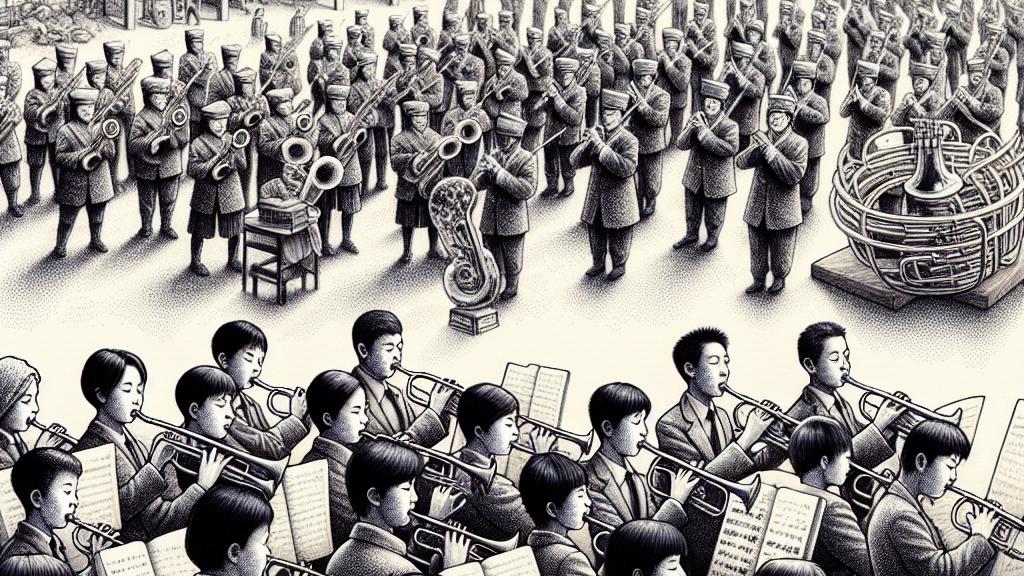The Shocking Truth: Why Most High School Band Members Hang Up Their Instruments
Overview
- A striking number of high school band members discontinue playing their instruments after graduation.
- Core reasons include lack of success in musical experiences and negative social dynamics within bands.
- Despite numerous opportunities in colleges and community bands, many students choose to abandon music entirely.

The Role of High School Bands in Japanese Culture
High school band programs in Japan hold an esteemed position, serving as crucial platforms for budding musicians. These programs not only cultivate musical skills but also reinforce teamwork, discipline, and community engagement. Students are often highly motivated during their high school years, participating in brass and woodwind ensembles with great enthusiasm. However, the unfortunate reality is that a significant number of these students cease playing their instruments post-graduation. While institutions of higher education and numerous community bands provide ample opportunities for musicianship, the seamless transition from high school to these platforms does not occur for many. This disconnect reveals deeper issues embedded within the high school band experience that warrant closer examination.
Underlying Psychological and Social Barriers
The reasons driving students to leave music post-high school can primarily be categorized into two significant barriers. The first is the absence of meaningful success experiences. Many aspiring musicians find themselves unable to achieve notable recognition within their bands, leading to feelings of frustration and inadequacy. Students who do not secure positions in prominent competition bands, or who are relegated to less prominent roles, often see their enthusiasm wane. This mirrors the emotional struggles of athletes who never get to play in games—leading them to step back from a once-beloved passion. The second, equally crucial barrier, revolves around the social dynamics experienced within these bands. High school bands can often become breeding grounds for negative relationships, with some students facing bullying or exclusion. The prospect of encountering unpleasant acquaintances in community bands inhibits many from pursuing musical opportunities, thereby severing their ties to music entirely upon graduation.
Solutions for Reinvigorating Musical Passion Among Youth
Despite the discouraging statistics, there is substantial potential for improving the situation for future musicians. To ensure that talented students do not abandon music after high school, a multifaceted approach is necessary. Educational institutions and community organizations can implement comprehensive mentorship programs designed to cultivate a culture of support and inspiration. By encouraging positive interactions and emphasizing personal growth, high schools can empower students to nurture their musical talents and self-esteem. Initiatives such as leadership training within bands, recognition of individual achievements, and opportunities for collaborative performances can greatly enhance students' experiences. Additionally, introducing diverse post-graduation options—ranging from informal music groups to community orchestras—can reignite students' passion for music. Transforming the narrative around high school band experiences into one of encouragement and support will foster a new generation of dedicated musicians who view music as a lifelong journey rather than a fleeting pastime.

Loading...